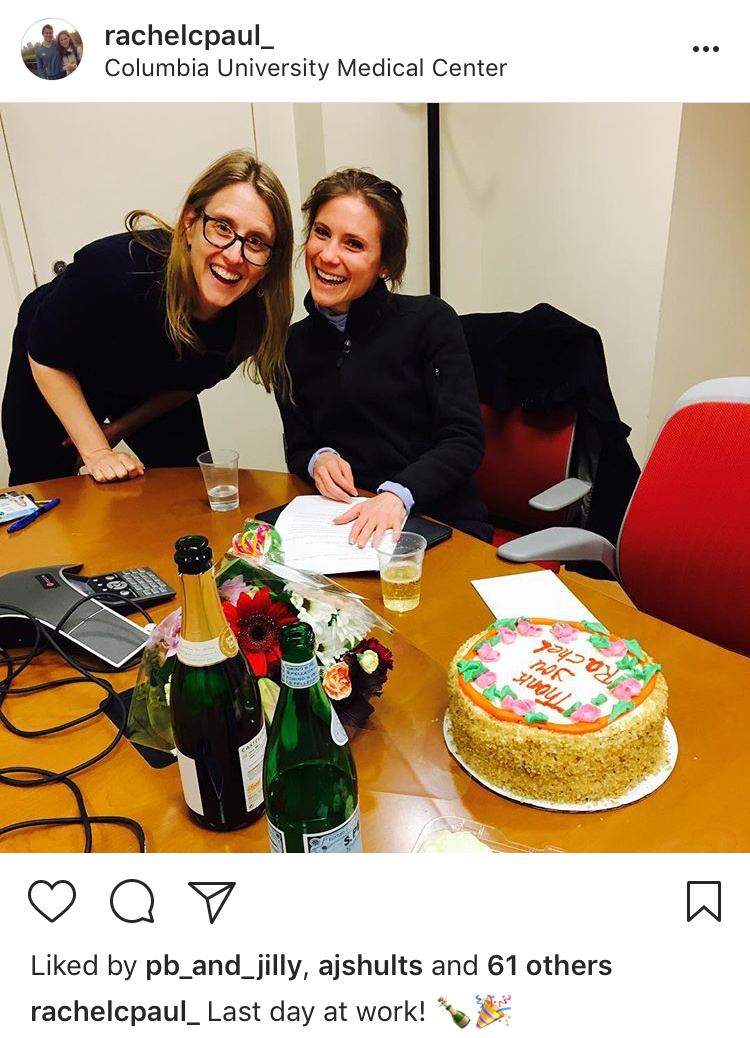I’ve received a lot of questions about my PhD in Behavioral Nutrition at Columbia – here’s a little more about it for those of you who are interested!
Many people who go into dietetics are interested in MNT or “medical nutrition therapy”, i.e. helping individuals in a hospital who are sick with a certain disease, such as kidney failure or congestive heart failure.
But I was always interested in mass change – and changing what I felt mattered the most to our nation’s health. Particularly, this focused on decreasing our obesity rate (currently 2/3 of Americans are overweight or obese). Obesity is the leading cause of most of our chronic diseases – heart disease, some forms of cancer, etc.
In order to evoke mass change, I wanted to understand systematic ways to change people’s behavior on the large scale. This drive led me to pursue my next degree in applied nutrition research – to better understand how to develop and evaluate evidence-based programs for changing behavior.
At Columbia, I studied Behavioral Nutrition, which is a mixture of psychology and nutrition. We aim to better understand how to educate different groups of individuals in systematic ways – to help them improve their diet and physical activity habits for the long term. My advisor was Isobel Contento, and I also worked closely with Pam Koch.
Our projects used a variety of methods for changing behavior. I led projects on implementing worksite wellness programs at the University level, poster campaigns aiming to improve water fountain usage, and classroom implemented programs in New York City public elementary and pre-schools.
For most of my time at Columbia, I worked at the Mailman School of Public Health with Heather Greenlee, who is now at Fred Hutchinson Cancer Center in Seattle. We also worked on a variety of educational programs, but her focus is on cancer patients and survivors. These programs combined online and classroom based education. Her NIH-funded grant, which is what I worked on for my dissertation, is a randomized controlled trial with Latina breast cancer survivors. The study is ongoing. I took a small part of the study for my schoolwork. For those of you interested, you can read my dissertation here.
Read Next






